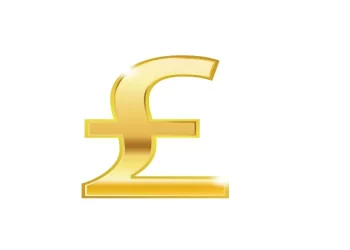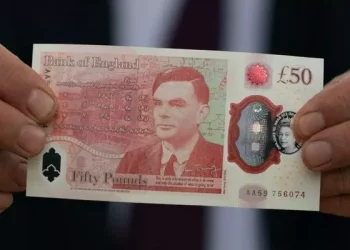Foreign exchange, commonly referred to as Forex or FX trading, is a complex yet fascinating financial market that involves the buying and selling of different currencies. The exchange rate between currencies can fluctuate daily, influenced by a variety of factors, including economic indicators, geopolitical events, market sentiment, and central bank policies. One of the common questions among those involved in international trade, travel, or investing in foreign currencies is the current value of one currency in terms of another. A particularly common query is: How much is 100 Hong Kong Dollars (HKD) to Philippine Peso (PHP)?
In this article, we will explore the answer to this question, breaking down the factors that influence currency exchange rates, how to convert HKD to PHP, and the implications for businesses, investors, and travelers. By the end of this piece, you should have a deeper understanding of how exchange rates work, how they are determined, and what impact currency fluctuations can have on your financial decisions.
Understanding Currency Exchange Rates
Before diving into the specifics of how much 100 Hong Kong Dollars is in Philippine Pesos, it’s important to understand what currency exchange rates are and how they work. In the simplest terms, an exchange rate is the value of one currency in relation to another. In this case, the exchange rate would reflect the value of 1 Hong Kong Dollar against the Philippine Peso. For example, if the exchange rate is 1 HKD = 7 PHP, then 100 HKD would be worth 700 PHP.
Exchange rates are constantly changing because they are influenced by various factors, including:
- Supply and Demand: Like any other commodity or asset, currencies are subject to the laws of supply and demand. If more people want to buy a particular currency (due to economic or geopolitical factors), its value will increase relative to other currencies. Conversely, if demand for a currency decreases, its value will fall.
- Interest Rates: Central banks influence exchange rates through monetary policy, particularly by adjusting interest rates. Higher interest rates in a country tend to attract foreign capital, which can strengthen the country’s currency. Conversely, lower interest rates might weaken a currency.
- Economic Performance: A country’s economic health, including its GDP, employment levels, inflation rates, and trade balances, plays a significant role in determining the strength of its currency. Strong economic performance generally leads to a stronger currency.
- Geopolitical Events: Political stability and global events, such as elections, wars, or trade negotiations, can significantly affect exchange rates. Investors often seek stability and may move capital to or from certain countries depending on the political environment.
- Market Sentiment: Exchange rates are also affected by market psychology. If investors believe a currency will perform well in the future, they will buy more of it, driving its value up. Conversely, negative sentiment can lead to a depreciation of the currency.
Understanding these factors helps explain why the value of one currency relative to another can fluctuate so frequently. Now, let’s turn our attention to the specific currencies in question: the Hong Kong Dollar and the Philippine Peso.
The Hong Kong Dollar (HKD) and the Philippine Peso (PHP)
Overview of the Hong Kong Dollar
The Hong Kong Dollar (HKD) is the official currency of Hong Kong, one of the world’s leading international financial centers. The currency is subdivided into 100 cents and is often represented by the symbol “$” or “HK$” to distinguish it from other dollars, such as the US Dollar (USD).
The Hong Kong Dollar is pegged to the US Dollar through a currency board system, which means its value is directly linked to the value of the USD. The HKD is one of the most traded currencies in the world due to Hong Kong’s position as a major global financial hub. As a result, its exchange rate is relatively stable compared to other currencies, especially when measured against the US Dollar.
Overview of the Philippine Peso
The Philippine Peso (PHP) is the official currency of the Philippines, a country in Southeast Asia with a population of over 100 million people. The currency is also subdivided into 100 centavos and is commonly symbolized by “₱” or simply “P.” The peso is one of the most important currencies in the region and is used in international trade, particularly in ASEAN countries.
The value of the Philippine Peso, like most currencies, is influenced by various factors, including the economic health of the Philippines, its trade balance, inflation rates, and monetary policies set by the Bangko Sentral ng Pilipinas (BSP), the country’s central bank.
The Philippine Peso is considered a somewhat volatile currency when compared to other major currencies like the US Dollar or the Euro, with fluctuations in its value often influenced by domestic political events, global commodity prices, and shifts in investor sentiment.
Converting 100 Hong Kong Dollars to Philippine Pesos
Now, let’s get to the crux of the question: How much is 100 Hong Kong Dollars worth in Philippine Pesos? To answer this, we need to look at the current exchange rate between the two currencies.
Exchange Rate Calculations
The exchange rate between the Hong Kong Dollar (HKD) and the Philippine Peso (PHP) varies on a daily basis, reflecting changes in market conditions, economic indicators, and investor sentiment. As of the latest available data (April 2025), the exchange rate for 1 Hong Kong Dollar (HKD) to Philippine Peso (PHP) is approximately 7.40 PHP.
Using this exchange rate, we can calculate the value of 100 Hong Kong Dollars in Philippine Pesos:
100HKD×7.40PHP/HKD=740PHP
Therefore, 100 Hong Kong Dollars is equivalent to 740 Philippine Pesos.
It’s important to note that exchange rates can fluctuate, so the value of 100 HKD in PHP may change depending on the market. To get an accurate and up-to-date conversion, it’s always best to check the current exchange rate from a reliable source, such as a bank, currency exchange platform, or financial website.
Factors Affecting the Conversion Rate
While the current exchange rate gives us an answer to how much 100 Hong Kong Dollars is in Philippine Pesos, several factors influence this rate. As mentioned earlier, economic performance, interest rates, and global events can all impact the exchange rate between HKD and PHP.
For example, if the Hong Kong economy is performing well and investors expect the value of the HKD to rise relative to the PHP, then the exchange rate between the two currencies may shift. Similarly, if the Philippine economy faces challenges such as high inflation or political instability, the Philippine Peso may weaken, causing the value of 100 HKD to increase in terms of PHP.
The Impact of Currency Fluctuations
The value of currencies can fluctuate significantly over time, and these fluctuations can have various effects on businesses, travelers, and investors. Here are a few examples of how changes in the exchange rate between the Hong Kong Dollar and the Philippine Peso could impact different groups:
- Businesses: Companies that engage in international trade between Hong Kong and the Philippines will need to manage currency fluctuations carefully. If the exchange rate between HKD and PHP moves in favor of one currency, businesses might either benefit or face additional costs. For example, a stronger Hong Kong Dollar means that companies in the Philippines may face higher costs when importing goods from Hong Kong. Conversely, a stronger Philippine Peso may make Filipino exports more expensive in Hong Kong.
- Travelers: Travelers from Hong Kong to the Philippines, or vice versa, need to consider the exchange rate when planning their trips. A favorable exchange rate can make travel cheaper for one group, while an unfavorable rate may increase travel costs. Travelers should always monitor the exchange rate before exchanging money at banks or currency exchange counters.
- Investors: Investors who are involved in foreign exchange markets or who hold investments in foreign currencies must keep an eye on exchange rates to manage their portfolios effectively. A sudden shift in the HKD/PHP exchange rate could lead to unexpected gains or losses for investors holding positions in these currencies.
Conclusion
In conclusion, the value of 100 Hong Kong Dollars in Philippine Pesos depends on the current exchange rate between the two currencies. Based on the most recent exchange rate of approximately 7.40 PHP per 1 HKD, 100 Hong Kong Dollars is equivalent to 740 Philippine Pesos. However, it’s important to note that exchange rates fluctuate daily due to a variety of economic, political, and market factors.
Understanding currency exchange rates and how they affect businesses, travelers, and investors is crucial for making informed financial decisions. Whether you are exchanging money for a trip to the Philippines, involved in international trade, or investing in the forex market, keeping track of currency values is essential for optimizing your financial strategies.
By staying informed about exchange rates and the factors that influence them, you can make more strategic decisions, minimize risk, and potentially maximize your returns in the dynamic world of foreign exchange.
Related Topics:

























